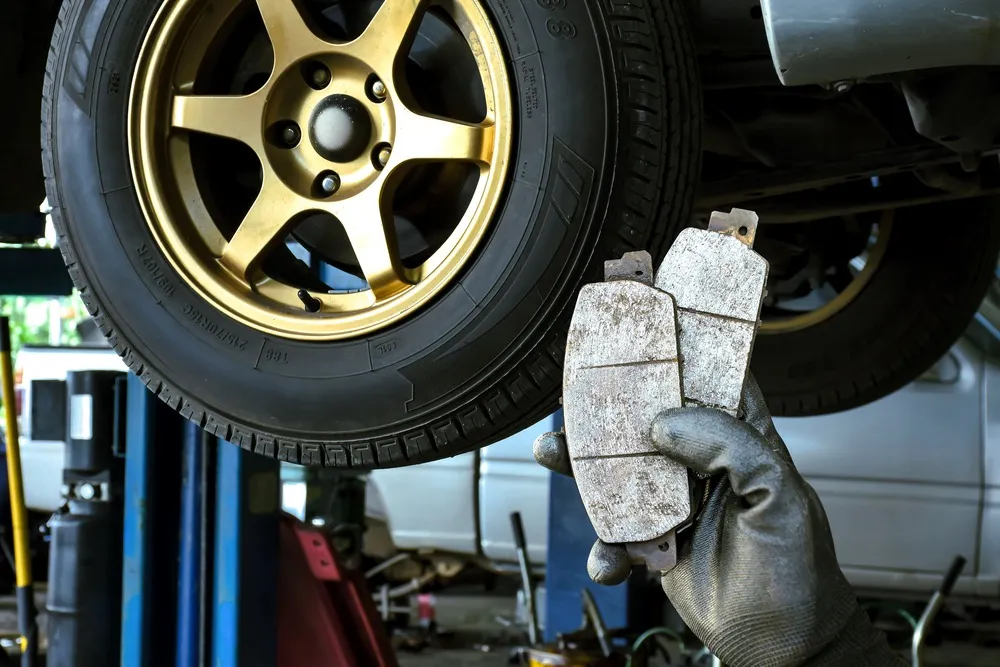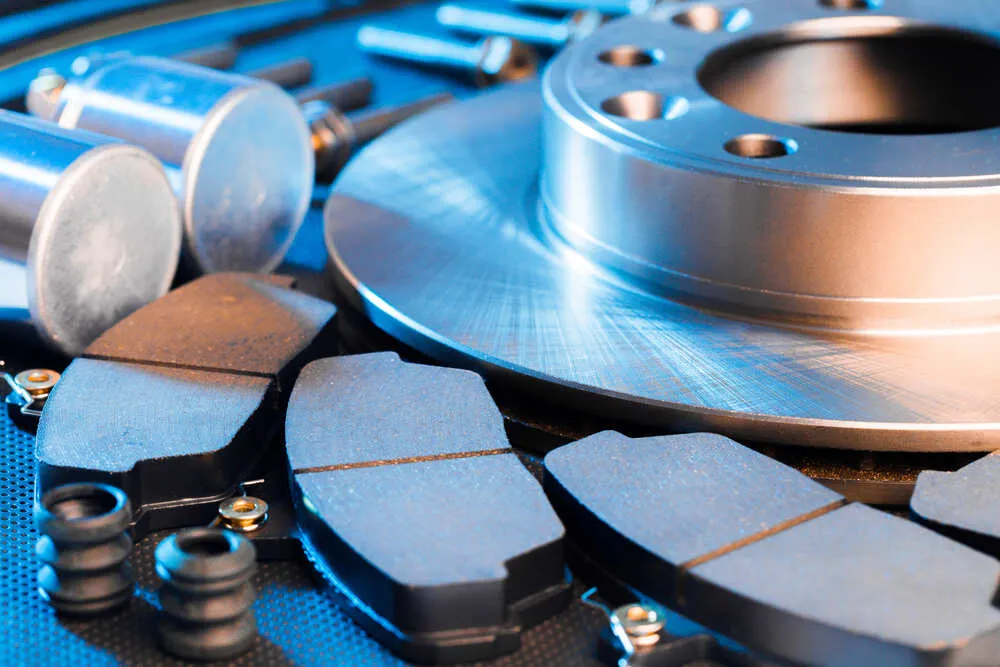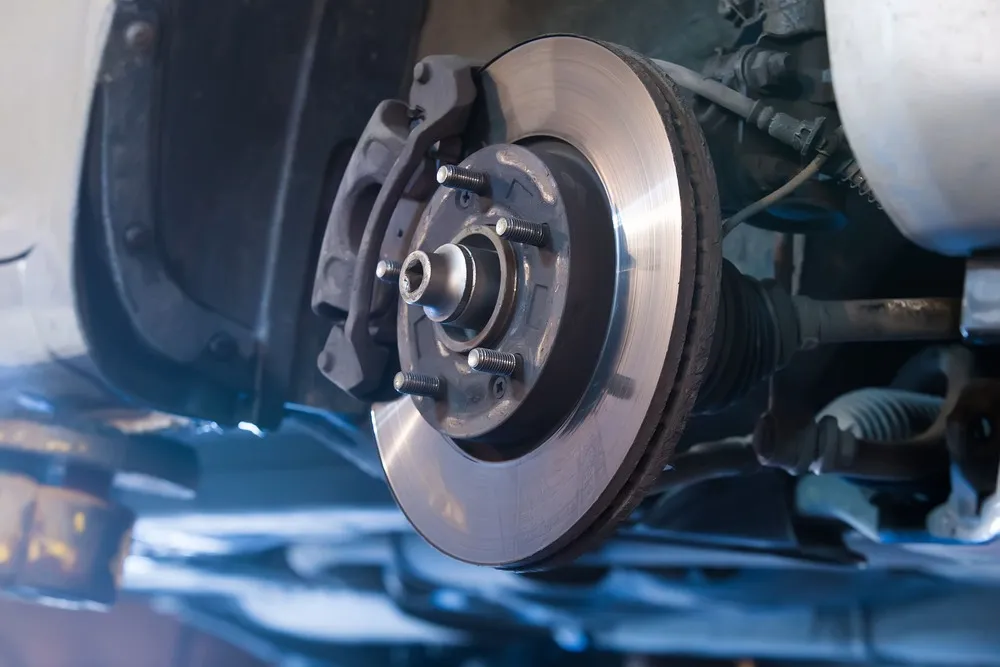Why Your Car Shakes When Braking
If your car shakes while braking and you wish to know why it is happening, you are not alone. Car shake upon braking is a common problem that can interfere with driving comfort and safety. Understanding the possible reasons why a car shakes and the mechanics of operation of the braking system will allow you to determine the cause and recognize when to call upon the professionals for expert overhaul. In this article, we will discuss the typical conditions that cause shaking, especially when traveling at high speeds, and provide a guide on how to provide smooth braking performance.
Things Any Car Owner Should Know: How the Braking System Works
The braking system includes the brake fluid, brake shoes (in case of drum brakes), pads and rotors, caliper, and other components, like the wheel hub and wheel bearing that allow the wheel to rotate.
Here is how the system works:
- First, you press the brake pedal down.
- Your car’s hydraulic pressure system compresses the brake caliper.
- The brake caliper presses the brake pads onto the brake rotor (or disc brake) mounted on the front wheels or all the wheels of your vehicle.
- The friction slows the spinning of the wheels and makes the car less shake so it comes to a safe stop.
Each of these components must be in prime working condition and properly maintained for optimum brake performance.

Possible Reasons Why Your Car Shakes When You Press the Brake
Vibrating vehicle or vibration on braking is mostly a sign of faulty brake rotors and brake pads or any other component of the braking system. The common causes of a vibrating or shaky vehicle while braking are as follows:
- Warped Brake Rotors (Warped Rotors). A common cause of shaking upon braking is a warped brake rotor. The rotors warp or achieve a thickness variation (also referred to as runout) due to the heat generated during the process of braking. The deformed surface causes the brake pads to grab unevenly and thus lead to brake pedal pulsation and shudder felt in the steering wheel or even in the entire car.
- Worn-Out Brake Pads. Worn brake pads or worn suspension components will cause the vehicle shakes. Unevenly worn-out or cracked brake pads will not contact with rotors evenly, causing the vehicle to shake.
- Stuck Brake Caliper: If you press the pads and the caliper is stuck, it will continuously apply pressure on the damaged brake rotor, generating excessive heat and causing uneven wear. This unevenness, often due to a variation in thickness of the rotors, can make the vehicle shake and cause the car owner to feel shaking when they engage the brakes.
- Suspension System or Wheel Bearing Issues: Sometimes, when wondering why your car shakes when braking, the cause isn’t the brakes themselves but worn suspension components or a faulty wheel bearing. These parts affect the stability of the front wheels, making the vehicle shake and preventing a smooth and stable ride.
- Tire and Wheel Problems: Another common reason for the steering wheel shaking when you brake is that the rotors are out of balance or there are issues with the tires, such as uneven wear or incorrect inflation. These problems disrupt wheel balance and can cause the car owner to feel shaking during braking. Since rotors are the most common source of vibration, ensuring they are balanced along with proper tire maintenance is key to preventing such issues.

Vibration When Braking at High Speeds: What It Tells You
When your car shakes when you brake or the car vibrates when braking becomes more severe at high speeds or highway speeds, it usually means the front rotors are warped or unbalanced. Under these driving conditions, small imperfections in the brake rotors or wheel hub are amplified, causing noticeable shaking in the steering wheel and a pulsating sensation when applying the brakes.
This shaking in the steering wheel and brake pedal pulsation can affect your control of the vehicle and increase stopping distances. While it can be unsettling to feel the shaking, the good news is that this is an easy-to-fix issue. It’s important to address and fix the problem promptly to ensure safe and smooth driving.
What to Do If You Notice the Car Shake When Braking
If your car vibrates or shakes when you apply pressure on the brake pedal, do the following:
- Repair by a professional: Have the vehicle transported to a professional car repair facility or fix shop to have the problem diagnosed. Expert technicians will be able to examine the brake parts, such as pads and rotors, caliper, and suspension system.
- Examination for warped brake rotors: When the rotors are warped, they may need to be resurfaced or replaced in order to solve the problem.
- Inspect brake pads and calipers: Failing or broken brake pads and a frozen-up brake caliper should be replaced or repaired.
- Inspect tires and wheel bearings: Tires need to be properly balanced and in good shape, and wheel bearings need to be in good working order.
- Avoid braking hard: Drive carefully until the problem is solved and avoid braking hard to avoid compounding the problem and causing more damage.
Most of the causes of a brake vibration in your car can be fixed by simple maintenance and repair in due time.

Prevention Tips – Keep Your Brakes Smooth
Prevent shake while braking and enjoy a smooth and smooth ride using these tips:
- Brake replacement: Replace your brake pads before they become very worn out and inspect rotors from time to time.
- Brake system regular check-up: Have a mechanic inspect brake fluid levels, calipers, and rotors wear or damage.
- Maintain tires and wheels: The tires need to be inflated, balanced, and aligned in a manner that reduces vibrations.
- Drive lightly: Steer clear of hard driving and hard braking, which will distort the rotors earlier.
- Check suspension components: Replace damaged or worn-out components of your suspension system as early as possible.
By following these steps, you’ll reduce the possible reasons why your car shakes when braking and enjoy safer, more comfortable driving.
Final Considerations
A car shake when braking is frequently an indicator of problems with your brake rotors and pads, caliper, or other system such as the wheel bearing and suspension system. Whether it is high-speed braking vibration or a shaking steering wheel at low speeds, having the bad brake fixed early with professional repair is crucial to your safety. Regular maintenance and a timely replacement of the brake components will ensure you brakes are smooth and your car is stable on the road.
Shaking brakes mean safety risks. Schedule a quick car brakes repair check-up now.




